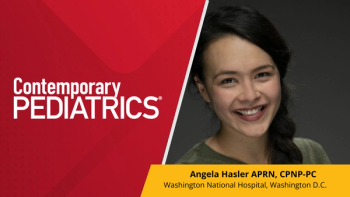
Weekly review: Teen caffeine intake, GLP-1 prescriptions, and more
Get caught up with our journal! Review some of the top stories from the Contemporary Pediatrics website over the last week, and catch up on anything you may have missed.
Thank you for visiting the Contemporary Pediatrics® website. Take a look at some of our top stories from last week (Monday, May 20, to Friday, May 24, 2024), and click on each link to read and watch anything you may have missed.
1.) Depression not increased by gender identity changes in adolescents
Though gender identity is susceptible to change among youths who identify as a sexual and gender minority (SGM), such changes are not associated with change in
2.) Adolescent GLP-1 prescriptions increased 6-fold from 2020 to 2023
The amount of adolescents and young adults receiving GLP-1 receptor agonists including semaglutide (Ozempic) and tirzepatide increased approximately 6-fold from 2020 to 2023, according to findings from a new research letter.
3.) WHO report highlights challenges and progress in combatting HIV, hepatitis, and STIs worldwide
This report underscores the increase of STIs alongside the ongoing global epidemics of HIV and viral hepatitis in the Americas and African regions.
4.) Survey reveals teens' top caffeine sources and parental concern
A recent poll revealed the caffeine consumption habits of teenagers and the concerns of their parents. The survey, conducted by the C.S. Mott Children’s Hospital National Poll on Children’s Health, targeted parents of children aged 13-18 years, revealing that a significant number of teens regularly consume caffeine, primarily through soda, tea, coffee, and energy drinks.
5.) How mental health programs can impact symptoms in pediatric patients
In this Q&A, Anne Bird, MD, discusses the results of a recently published study observing the impact Rady Children's Hospital's new mental health program has had on their patients and mental health symptoms.
Newsletter
Access practical, evidence-based guidance to support better care for our youngest patients. Join our email list for the latest clinical updates.








